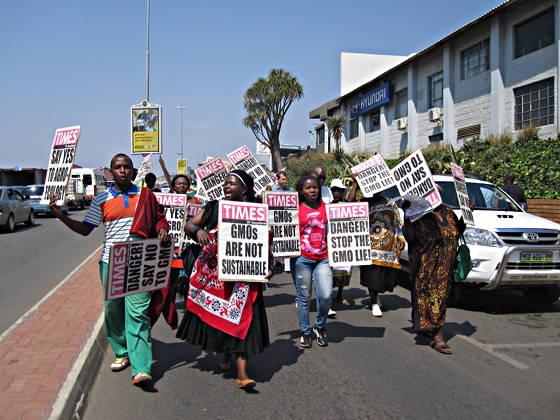Latest Resources

5 December 2022
The Africa we want?
A NEO-IMPERIALIST FOOD REGIME REINFORCED BY AGENDA 2063, THE UNFCCC, AND THE CBD Closely linked to this work, is a five part series of interconnected briefing papers which reflect on the inability of both the UNFCCC and the CBD, to address collapsing socio-ecological systems and rather, its complicity in re-embedding geopolitical inequality, debt, and underdevelopment […]

9 December 2020
Neo-colonial economies and ecologies, smallholder farmers and multiple shocks: The case of cyclon...
We are pleased to share with you the second discussion paper in our “Multiple Shocks in Africa Series”, Neo-colonial economies and ecologies, smallholder farmers and multiple shocks: The case of cyclones Idai and Kenneth in Mozambique and Zimbabwe. (Por favor clique aqui para Português). The paper exposes how the two cyclones that battered Mozambique and […]

27 November 2020
Introducing ACB’s multiple shocks in Africa series: ecological crisis, capitalist nature & d...
Veuillez cliquer ici pour le français Por favor clique aqui para Português Por favor, haga clic aquí para el español Tafadhali bonyeza hapa kwa Kiswahili The COVID-19 pandemic and subsequent crises, as a result of lockdowns, have exposed the fractures of human societies’ relationship with nature. In a world dominated by capitalist globalisation, these crises […]

9 October 2020
Struggle for recognition of traditional land, territories and seed in Brazil
(Por favor, clique aqui para Português) In recent weeks, a wave of solidarity from many parts of Brazil and from several countries around the world has reached southern Minas Gerais, in support of the resistance of the 450 farming families, who have organised and lived at camp “Quilombo Campo Grande” over the past 22 years. […]

4 October 2019
Resounding no to Monsanto’s ‘bogus’ GM drought tolerant maize
Resounding no to Monsanto’s ‘bogus’ GM drought tolerant maize: South Africa’s Minister, Appeal Board and Biosafety Authority Reject Monsanto’s GM seeds Johannesburg, South Africa, 4 October 2019 After more than 10 years of battling Monsanto’s ‘bogus’ drought tolerant maize project, the African Centre for Biodiversity (ACB) welcomes the decision by the Minister of Agriculture, Ms. […]

5 July 2019
Post Cyclone Idai: Farming practices for resilience to withstand extreme weather events
Ranked as one of the worst tropical storms to hit Africa, Cyclone Idai made landfall in central Mozambique on 15 March, before moving on to Malawi and Zimbabwe. The district of Chimanimani in Zimbabwe was one of the worst-hit areas. On a recent trip to Zimbabwe, ACB spoke to representatives of three organisations that work […]

15 May 2019
Input Subsidies in Mozambique: the future of peasant farmers and their seed systems
In this report, the African Centre for Biodiversity outlines and assesses input subsidy programmes in Mozambique, as part of the larger agriculture policy landscape, and the impact this has had on the agricultural sector, particularly on smallholder farmers. In Mozambique, peasant farmers feed the country mostly using their own seed. Yet the majority of (donor-funded) […]

28 March 2019
Cyclone Idai’s warning – Shift to agroecological systems that work with nature or suffer more dev...
Ranked as one of the worst tropical storms on record to hit Africa, Cyclone Idai made landfall in Beira on Thursday 15 March, before lacerating its way across central Mozambique and then on towards neighbouring Malawi and Zimbabwe. Heavy rains, flooding and storm damage has resulted in devastation on a vast scale. It is estimated […]

10 September 2018
Report from SADC regional farmer speak out on farm input subsidy programmes
Rural Women’s Assembly (RWA) and African Centre for Biodiversity (ACB) jointly hosted a meeting of farmers and civil society organisations (CSOs) in August 2018 to share views and experiences on farm input subsidy programmes (FISPs) and public sector support for agroecology in the region. About 140 participants from Namibia, South Africa, Zimbabwe, Mozambique, Zambia, Malawi, […]

18 October 2017
The GMO crisis in Swaziland
Swaziland is under enormous pressure to introduce genetically modified organisms (GMOs) into the country’s farming system. This pressure is coming not only from Monsanto but also from farmers and some sections of the public who have been fed a great deal of misinformation and hype by the pro-biotech machinery. The farmers, acting on incomplete and […]
